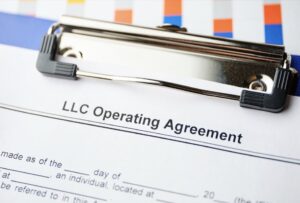| Image credit: Pixabay
The Ukrainian tech community is showing signs of resilience as Russia invades the country and big tech giants battle the tension caused by propaganda. As Russia began building its military might in Belarus and at a shared border with Ukraine, the whole scene played out for the world on TikTok.
Videos of Russian troops massing on Ukraine‘s borders were being shared widely on TikTok last week, showing how information is now disseminated through tech platforms and not mainstream media channels. However, platforms like Facebook and Google also had to battle Russian propaganda.
These are the women in science of the Amsterdam startup ecosystem.
Tech platforms have had a rough few years battling Russian disinformation on their platform. Experts have been hard at work debunking narratives spread on platforms like Facebook, Telegram, and elsewhere about Western aggression and even supposed violence by Ukrainian forces.
Even US President Joe Biden mentioned Russia pushing “false-flag events” as a pretext for the invasion. Now, that Russian forces have launched a military assualt on Ukraine by crossing its borders and bombing targets near big cities, the country’s tech community is gearing up to stand with Ukraine. Even tech companies in the US and other countries who have relied on Ukraine as a source of cheap and reliable tech talent are trying to evacuate their employees and keep services online.
Tech community is one of the pillars of Ukraine’s resistance
TechUkraine, an organisation with a European core but global outlook, is leading the charge on dissemination of verified information. In the face of disinformation and propaganda on tech platforms, TechUkraine is encouraging people to take two steps to help Ukraine “stand against Russian aggression”.
It is encouraging people to spread only verified information and is also supporting organisations that strengthen Ukraine’s defence capabilities. It is also extensively sharing details of the official website, Twitter and Facebook profile of President of Ukraine, MFA of Ukraine, and Ukraine’s official social media accounts as verified sources.
It is also encouraging people around the world to stand in solidarity with Ukrainians who are seeking peace by using the hashtag #StandwithUkraine. Some of the other hashtags used by TechUkraine include #StopRussianAggression, #UkraineUnderAttack and #RussiaInvadedUkraine.
“We in Ukraine already got used to living under some pressure of an ongoing war, which didn’t start now. It has already been in Ukraine since 2014, but today it entered in its open phase,” says TechUkraine’s Director Nataly Veremeeva. She hopes that diplomatic effort and international pressure on Russia will help the country cope with this unprecedented challenge.
In a statement shared with Silicon Canals, Veremeeva argues that Ukrainian tech community’s spirits are stronger than ever. “Tech community, being an active part of the society, consisting of thousands of educated people with a global outlook, is one of the pillars of Ukraine’s resistance. Millions of hryvnias were donated to support the army. The Ukrainian tech entrepreneurs have helped spread the world to the global community and media, raise awareness, and help in diplomatic and military negotiations,” she says.
“We know we are fighting for our country, for our freedom to build our future according to global values. And there is no way back. Freedom, once tasted, can’t be forgotten. High ideals, once understood, stay with us forever. We only hope millions and billions of people all over the world, businessmen, politicians and ordinary people will support us in this effort,” she adds.
While Ukrainian resistance and resilience remains strong, Veremeeva is worried about the panic among clients. She understands the risk associated with working with an IT company in a conflict zone compared to one operating from a peaceful country.
She says, “The example of Israel proves that it is possible and even beneficial. There is a huge difference in motivation between people, working only for money and people, inspired by high ideas and missions. We do hope that clients of Ukrainian companies will choose to continue working with us.”
She also urges people around the world to continue buying Ukrainian software services and products and asks people to spread news from official sources. Like other entrepreneurs and officials, Veremeeva also supports “donating to the funds supporting army, medical and logistical support.”
While Ukraine is being invaded by the Russian army, Veremeeva stands with those Russians who don’t seek war and are openly expressing their views. “You could help Russians that do not support the current political system in Russia to rise and defend their right to build a strong, adequate Russia, a respected and a safe member of the global community. This is the only sustainable solution that will vaccinate the whole world against this constant Russian threat of inadequate global choices and tensions in all its neighbouring countries,” she adds.
Veremeeva also has a message for the world. She says this invasion is not just about Ukraine and adds, “if you let Ukraine lose, the next country could be yours.”
“Russia is a totalitarian state with a nuclear potential. And once it tastes blood and impunity, it will be really hard to stop. Help us in our fight for our country, for our values and our path. We are a truly European and global country, wishing to add the most precious things that we have – our creative spirit and minds of our smart people – to solving not only local tasks, but also challenges that humanity is facing. And please support us with all your resources, now it is more important, then ever,” she says in an emailed statement.
MacPaw’s operations remain unaffected
MacPaw, a company building Mac utility applications, has issued a statement reassuring its users that the invasion won’t affect its services. MacPaw was founded and operated primarily in Kyiv, Ukraine, but the company has been preparing for these circumstances. “[We] were already mainly working remotely to ensure no disruptions in the support and development of our products,” CEO Oleksandr Kosovan says in a blog post.
Kosovan notes that MacPaw hosts its infrastructure and user data on Amazon Web Services and the cloud operation is outside Ukraine. “We have launched an emergency plan to ensure the safety of our peers based in Ukraine. With regards to the use of our products, including CleanMyMac, Setapp, etc., we ensure no disruptions in the support and development. We securely host all of our infrastructure and user data on Amazon Web Services, and the cloud service server’s physical location is outside Ukraine,” a company spokesperson told Silicon Canals.
While MacPaw’s services will continue to work, the company is focusing on “security of its peers”. “At this moment, we’re staying strong, united, and ready to defend the sovereignty and territorial integrity of Ukraine. To support Ukraine in this dark hour, please spread the word among colleagues and readers. Please consider donating to Come Back Alive or other charities helping Ukraine and its Armed Forces,” the spokesperson added.
Preply offers assistance to staff in Ukraine
Preply, a US-based language learning app and e-learning platform, said that it has activated full support for its staff where necessary. CEO Kirill Bigai told Silicon Canals in a statement that “it’s a devastatingly sad day in Ukraine and our thoughts are wholeheartedly with everybody who is affected.”
Bigai adds that two thirds of its employees are stationed in Barcelona or elsewhere around the world. However, for its staff based in Ukraine, the company is offering assistance to relocate to a different location.
“As a US registered company, there is no critical impact to our business operations. Our activity is global and all major financial flows and servers are outside of Ukraine. Our 40,000+ tutors and the hundreds of students that take classes on Preply are based all over the glove,” he adds.
Finmap founder remembers past Russian aggression
Ivan Kaunov, founder of a Ukrainian startup developing a corporate finance management application, says, “We are immune to Putin’s intimidation.”
In an interview with CzechCrunch, Kaunov recollected military intervention from eight years ago, which saw Russia-backed separatists take control of the Crimean peninsula. “Almost every family has faced this situation. I grew up as a child near Donetsk. I have several relatives who had to move from there and left their homes in 2014,” he adds.
Donetsk in eastern Ukraine was one of the first cities to be attacked by Russian forces and reports have claimed at least five blasts heard in the separatist-held city.
Kaunov further adds that the situation remains calm in the capital city of Kyiv. “In a country that is expecting a military invasion, the situation here is quite calm. There is no panic or an effort to escape, on the contrary, everyone is trying to find ways to help the army. People join the defence units or pay a lot of taxes to the government in advance,” he told the publication.
European Startup Network members offer support to Ukrainian entrepreneurs
The European Startup Network has expressed its solidarity for the Ukrainian people and is welcoming any Ukrainian founder looking for a “safe harbour” to continue their innovation project. The network says these Ukrainian talents will be welcomed by a member organisation of ESN.
- BESCO, a member organisation of ESN in Bulgaria, is working with the government to open borders for all tech talent (and their families) working for Ukrainian companies represented in Bulgaria or Bulgarian companies with employees residing in Ukraine.
- Euratechnologies in France will sponsor visa applications for tech founders and their families. It is also offering free access to its acceleration programs for up to 30+ startups.
- Spanish Startups is providing free consultancy for all the startups and founders looking to move to Spain. It is also offering assistance about the ecosystem and how to start operations in the country.
- In Romania, a southern neighbouring country of Ukraine, ROTSA is offering assistance and connections with the national ecosystem to Ukrainian startups.
- Latvia’s startup ecosystem, led by Startin.LV, TechHub Riga, and TechChill, is “urging the national government to soften the immigration and legal requirements for the Ukrainian entrepreneurs and startups seeking to expand to Europe and/or relocate.”
- InnovUp is asking the Italian government to activate an immediate visa pass for startups and all innovative entrepreneurs from Ukraine.
- Beta-i in Portugal is contacting all of its Ukrainian startup alumni to offer support and is also providing assistance to those aiming to move their business to the country.
Ukrainian VC community preparing for impact
Vitaly Laptenok, General Partner at Flyer One Ventures, says that “there is no noticeable impact on VC business activity at the moment.” However, he does see a certain impact on investment in Ukraine due to the Russian invasion.
Flyer One is an international CIS-region focused VC with offices in Kyiv and London. In a statement shared with Silicon Canals, Laptenok says Flyer One’s VC team plans to continue to work as usual.
“When it comes to investor’s intentions, the way we plan to invest in the near future has not changed. Our investments strategy remains the same, as well as all the fundraising assistance we arrange for our portfolio companies. The best we can do now is to keep doing our job well under conditions of safety and ensuring that all priority needs are met,” he adds.
He further explains that founders and top management of tech companies have been closely monitoring the situation while tech people from the local community “manage to maintain a fairly large focus on business needs.” Ukraine-based tech companies are able to operate due to the rapid communication and are prioritising safety and security of their employees.
“The majority of our portfolio companies operate in international markets and continue their business with no changes, while we steadily help them in our areas of expertise.”
Laptenok also told us that the European and global community has shown great support by staying in touch with Ukrainian founders and expressing supportive opinions online. “We are already eternally grateful for all the social and informational support that the international tech community is providing right now,” he says.
Ways to help Ukrainian tech community
In a LinkedIn post, Robert Vis, founder and CEO of Amsterdam-based MessageBird, has offered ways to support the Ukrainian tech community. “Silence is never the answer. Calling all (tech) founders specifically to speak up. Sovereignty must be respected [sic],” Vis wrote.
Here are some of the ways that Vis recommends tech companies to support Ukraine’s fledgling tech community right now:
- Representation letters for employees and their families who want to leave their country. He notes that these companies must state that they will be financially responsible.
- Building safety houses around the borders of Ukraine for people to have a place to go when they leave the country.
- Since local banks have shut down, Vis recommends funds to cover medical and food supplies at the borders.
Vis has gone ahead to announce that MessageBird will impose sanctions on Russian customers that would see them blocked from accessing API to the platform, block SMS and voice traffic to Russian carriers by its global customer base.
Olga Kravchenko, the Ukrainian CEO of Musemio, has posted an important message for all HR people on LinkedIn. She says HR should reach out immediately to any Ukrainian nationals within their organisation, offer them support and make them know that the company supports them through this turmoil.
“It would help if you were prepared to accept that these people are now in survival mode and might be ordered to go to shelters. They might lose any connection with the outside world. They might choose to stay offline as much as possible to avoid informational distress. They need to know that they have your support,” she says.
Grammarly, a successful startup from Ukraine and the beacon for Ukraine’s tech ecosystem, is focussing on the safety and well-being of its team. Brad Hoover, CEO of Grammarly, says the company has built contingency plans for various scenarios, including financial and logistical assistance to team members and their families.
In its commitment to support Ukraine, Hoover says Grammarly is offering its service for free to all nonprofits and NGOs doing the essential work in the country. On LinkedIn, Hoover says 160 organisations within Ukraine have signed up and is urging more organisations to join.
Jakob Ramlöw is helping Ukrainian developers land a job and relocate to Sweden. He has registered ukrainedevs.com as a portal to help Ukrainians look for jobs in Sweden. Lucie Zajíčková is recommending people to donate to verified organisations such as People in Need or Caritas Czech Republic.
How partnering up with Salesforce helped him succeed!







![Read more about the article [Startup Bharat] This Coimbatore startup is providing products that promote a safer lifestyle amid the new nor](https://blog.digitalsevaa.com/wp-content/uploads/2021/03/Imagedy0u-1616063452114-300x150.jpg)


